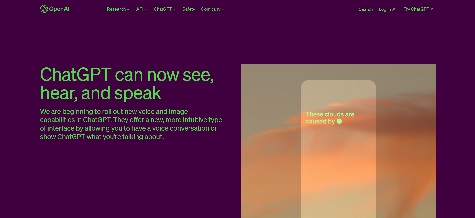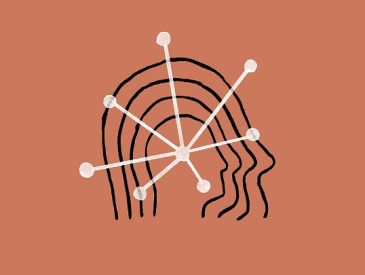OpenAI’s powerful language model, ChatGPT, is set to receive a significant upgrade that expands its modality and enhances the user experience. With a range of new additions, ChatGPT will soon be able to see, hear, and even speak, revolutionizing interactions with the model.
One of the notable upgrades is the introduction of speaking capabilities to ChatGPT. Users will have the ability to engage in spoken conversations with the model, creating a more interactive and immersive experience. This advancement opens up new possibilities for real-time communication, making interactions with ChatGPT feel even more natural and dynamic.
In addition to speaking, ChatGPT is also getting the ability to “see” through the incorporation of image uploading functionality. Users will be able to upload images and ask questions about them, enabling ChatGPT to provide insights, descriptions, or answers based on the visual content. This enhancement further enhances the utility and versatility of ChatGPT, allowing it to analyze and respond to visual information.
By expanding into multiple modalities, ChatGPT becomes a more well-rounded conversational AI model. The integration of speaking and image analysis capabilities brings it closer to emulating human-like interactions, enabling users to engage with the model using various forms of communication.
It’s important to note that while these additions enhance the capabilities of ChatGPT, the model still has limitations. OpenAI emphasizes responsible use and encourages users to be mindful of the potential ethical implications and biases inherent in AI-based technologies. Ongoing research and development efforts are focused on addressing these concerns and refining the model’s performance.
The expansion of ChatGPT’s modalities reflects the continuous progress in the field of conversational AI. By incorporating speaking and image analysis capabilities, OpenAI aims to push the boundaries of what AI models can achieve and unlock new applications across different domains.
With ChatGPT now able to see, hear, and speak, the potential applications are vast. From virtual assistants and customer support chatbots to creative collaborations and educational tools, the upgraded ChatGPT opens up exciting possibilities for human-machine interactions.
As OpenAI continues to refine and enhance ChatGPT, it is essential to gather feedback and iterate on the model’s capabilities. OpenAI values user input and encourages individuals to provide feedback on problematic outputs or biases through their feedback channels. This iterative approach ensures that AI models like ChatGPT evolve in a way that aligns with societal needs and expectations.
The expansion of ChatGPT’s modality is a significant step forward in the evolution of conversational AI. By incorporating the ability to see, hear, and speak, ChatGPT becomes more versatile and capable of engaging in richer interactions. As these advancements roll out, users can look forward to more dynamic and immersive experiences when interacting with ChatGPT.
Sources:
Get ready to dive into a world of AI news, reviews, and tips at Wicked Sciences! If you’ve been searching the internet for the latest insights on artificial intelligence, look no further. We understand that staying up to date with the ever-evolving field of AI can be a challenge, but Wicked Science is here to make it easier. Our website is packed with captivating articles and informative content that will keep you informed about the latest trends, breakthroughs, and applications in the world of AI. Whether you’re a seasoned AI enthusiast or just starting your journey, Wicked Science is your go-to destination for all things AI. Discover more by visiting our website today and unlock a world of fascinating AI knowledge.





